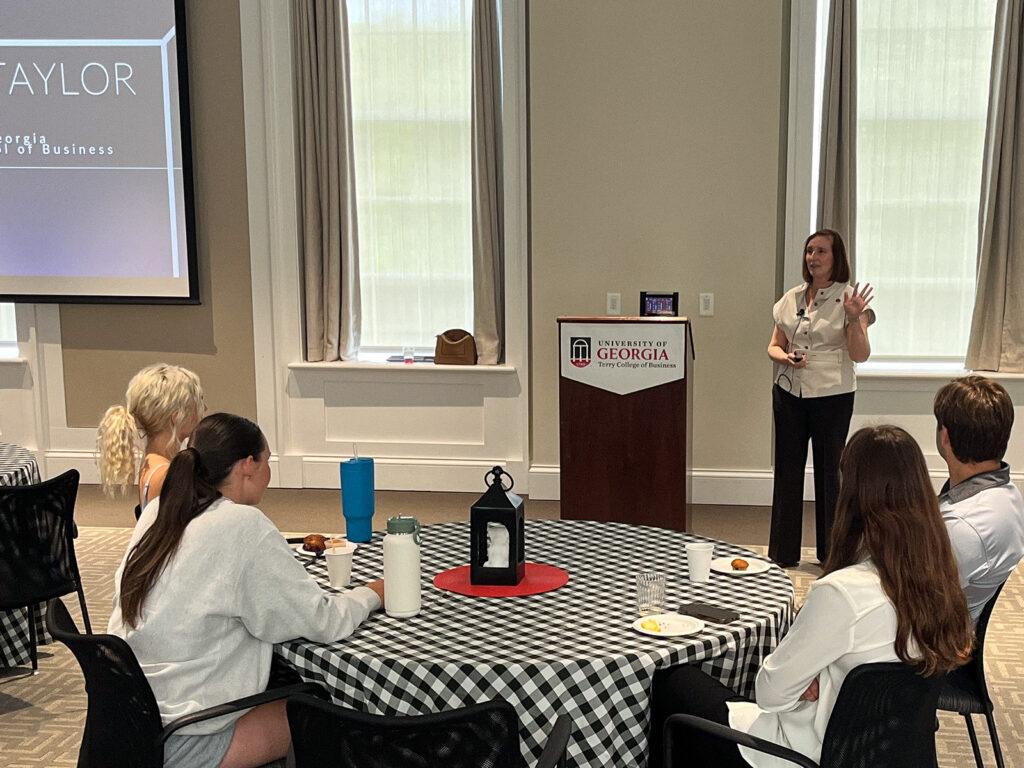On the verge of its 100th birthday next year, Delta Air Lines is thinking a little about its past and a lot about its future.
That future is where travelers book with Delta because they know they will have a better experience traveling with the legacy carrier, said Delta senior vice president for In-Flight Service Kristen Taylor (ABJ ’96, MBA ’97).
A “better experience” helped Delta become one of the first U.S. airlines to recover from the COVID-19 recession, and it’s poised to be one of the only airlines to make a profit in the first quarter of this year.
“Delta made 40% of the total industry revenue last year, in total industry profit last year. We’re only 20% of seat share,” she told a group of University of Georgia students gathered for a keynote address during Terry College International Business Week. “That means customers are willing to pay almost 20% more to fly with Delta. And we hear that consistently from them. Sometimes we hear they don’t even look at the price. They just know they need to get there on time and want to find a premium product.”
As senior vice president for In-Flight Service, Taylor is responsible for delivering the premium experience passengers want — from ease of boarding to amenities.
One program Delta is in the midst of launching is a free Wi-Fi service to replace the airline’s paid inflight internet service.
“We’re in a world where we are installing fast, free Wi-Fi,” she said. “We’re the only airline committed to doing this. It’s broadly available on our domestic fleet, and we’re working toward installing it on our international fleet by the end of the year.”
In addition to perks such as free Wi-Fi, Delta also wants to differentiate itself as being a truly international airline — offering more international flights than other airlines and making sure international passengers feel comfortable. It includes partnering with renowned chefs to develop culturally relevant in-flight menus, ensuring seat-back entertainment systems have menus and translations in culturally relevant languages, and pairing flight attendants with fluency in those languages on international flights.
“It’s important we recognize the various cultures of those we serve on board,” Taylor said. “So, we need to ensure safety information is available to customers in the language they understand. And then we also want to create a welcoming experience for them.”
Taylor’s 27 years at Delta — in marketing, reservations, pricing, and now in-flight operations — gives her a unique perspective on how to build an airline into a premium experience brand. Her breadth of experience and perspective is key to the brand, she said.
“We very much encourage that kind of movement around the organization,” she said. “Understanding how the different pieces work is incredibly important. We feel getting a plane out safely and on time is the ultimate team sport.”

